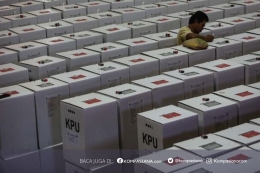Women's empowerment is a fundamental issue that greatly influences the progress of a nation. In many countries, including Indonesia, although women have extraordinary potential, they often face various obstacles that limit their role and contribution to social and economic development. One of the main challenges faced by women is inequality in access to education, employment, and participation in decision-making in society.
Access to education is a basic right of every individual, including women. However, in many rural and remote areas in Indonesia, there is still a gap in education between women and men. Many women are forced to drop out of school early due to economic, cultural, or social responsibilities, such as working or taking care of the household. This limits women's ability to develop their potential and participate in the economy and social life. Without adequate education, women are trapped in poverty and powerlessness, which hinders the nation's social and economic progress.
After receiving an education, women still face discrimination in the workplace, such as pay disparities, lack of promotion opportunities, and gender stereotypes that limit their roles. These disparities not only harm women individually, but also hinder the economic potential that can be gained from women's contributions. If given equal opportunities, women can be a powerful force in driving economic growth and community welfare.
The role of women in decision-making, whether in the family, society, or the state, is still limited. Society often views women only as housewives or husband's companions, which hinders their participation in important decisions. Therefore, women's empowerment needs to include equal opportunities in social, political, and economic roles so that they can contribute maximally to national development.
Indonesia's Gender Empowerment Index (IDG) is improving from year to year. This means that the gap between men and women in being involved in economics and politics and in decisionmaking in various areas of life is decreasing. The Central Statistics Agency (BPS) shows that Indonesia's IDG in 2023 scored 76.90. This achievement grew by 0.4% compared to 2022 with 76.59. The current conditions reflected in these data underline that the issue of gender equality in Indonesia still needs special attention. Improvements must be made more actively in various dimensions, such as education, health, economy, and politics. This step is important for broader community empowerment while achieving the 2030 Sustainable Goals in terms of gender equality.
One relevant solution to address the challenges of women's empowerment in Indonesia is the development of technology-based education and training programs that can be accessed by women throughout the country, especially in remote areas. Many women in Indonesia are hampered by limited access to formal education and equal employment opportunities. However, with the rapid development of technology, we have the opportunity to utilize digital platforms to provide practical education and skills training that are in line with the needs of the current job market.
Through this program, women, especially those living in remote areas, can access relevant digital skills training, such as programming, graphic design, digital marketing, and various other skills that can be done flexibly via the internet. This will open up opportunities for them to work in various growing sectors, such as the digital industry, e-commerce, and technology, which are now very promising sectors.
By providing technology-based training, women not only gain new knowledge that improves their skills, but also have the opportunity to be economically independent and play a more active role in the digital economy. In addition, this program will also reduce the gender gap in the world of work, while accelerating the creation of a more inclusive and equal society.
Empowering women through technology-based education is expected to reduce economic dependency, improve women's quality of life, and give them greater opportunities to contribute to economic and social development in Indonesia. It is important to voice and support policies that support women's empowerment in order to create a more just, inclusive and thriving society. Women's empowerment is not just about individual rights, but also about harnessing the enormous potential that women have to realize more equitable progress for the entire nation.
Overall, women's empowerment is not only about justice for women themselves, but also about creating a more inclusive, advanced, and competitive society. Women's empowerment that touches on access to education, job opportunities, and women's social roles will pave the way for sustainable and equitable national progress.
Baca konten-konten menarik Kompasiana langsung dari smartphone kamu. Follow channel WhatsApp Kompasiana sekarang di sini: https://whatsapp.com/channel/0029VaYjYaL4Spk7WflFYJ2H







